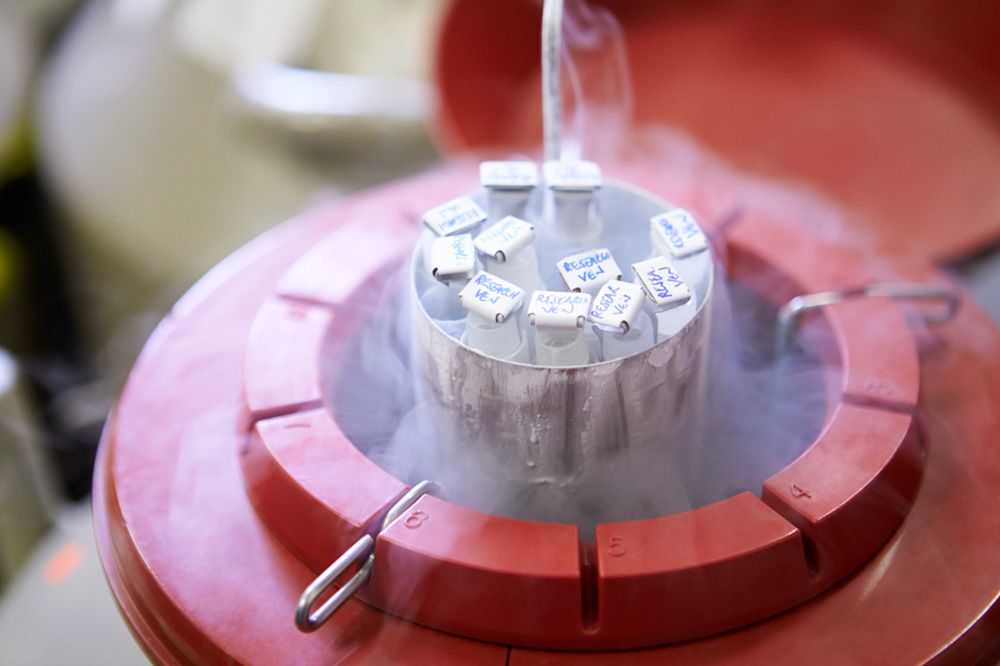What Is Fertility Preservation and How Does It Work?
 Here at Heartland Center, we want to help all patients start the families of their dreams. This involves tailoring treatments to their needs and ensuring that everyone who visits knows what their treatment options are. This focus on the patient has helped us become leading specialists in fertility treatments in Omaha.
Here at Heartland Center, we want to help all patients start the families of their dreams. This involves tailoring treatments to their needs and ensuring that everyone who visits knows what their treatment options are. This focus on the patient has helped us become leading specialists in fertility treatments in Omaha.
In some cases, the ideal treatment for a patient involves preserving their ability to have a child at a later time. With that in mind, let's explore the issue of fertility preservation.
What Is Fertility Preservation?
Fertility preservation refers to various techniques used to ensure people can have children in the future. In many cases, this means preserving genetic material through the use of cryofreezing techniques. This freezes genetic material a very low temperatures in order to prevent degradation of the the cells. These preserved genetic materials can then be used in fertility procedures, typically through in virto fertilization (IVF) and/or surrogate carriers.
Fertility Preservation for Cancer and Cancer Treatment
Cancer treatment is a very common reason why people turn to fertility preservation. The cancer itself can lead to issues with infertility or sterility, particularly when the reproductive organs or the pelvic region are affected by cancerous cells. In addition, undergoing chemotherapy or radiation therapy can result in lower fertility or general infertility.
Other medical conditions and diseases can similarly prompt people to consider fertility preservation techniques.
Fertility Preservation for Personal and Social Reasons
In addition to medical conditions, people tend to consider fertility preservation for personal and social reasons. There are myriad reasons to consider these options, some of which may include:
- Indecisiveness about having children right now
- Social stigma of having a child
- Issues with age and agism
- Significant age difference in a couple
- Concerns about spouse or significant other
- Spouse or significant other works in dangerous profession
- Spouse or significant other is in the military/armed forces
In all of the above cases, there is a personal risk or a social issue to consider when it comes to fertility, childbirth, parenthood, and having a child. These are all important to consider when it comes to matters of fertility preservation and the issues related to starting a family of your own.
Options for Female Fertility Preservation
The most common options for female fertility preservation include:
-
Egg Freezing (Oocyte Cryopreservation) – During egg freezing, ovulation is induced using fertility drugs so fertility doctors can then take healthy, viable eggs to be frozen/preserved for later use.
-
Embryo Cryopreservation – Similar in many ways to egg freezing, this process freezes embryos. Embryos are fertilized eggs that are beginning the process of cellular division.
-
Gonadal Shielding – This process is used during cancer treatment and involves the placement of special shields that reduce the amount of radiation exposure to a patient's reproductive organs. You'll note that this does not involve cryofreezing but rather protecting the reproductive organs themselves.
Options for Male Fertility Preservation
The most common options for male fertility preservation include:
-
Sperm Cryopreservation – Similar to the egg and embryo procedures we mentioned above, sperm freezing involves preserving sperm taken from a male patient. Sometimes sperm extraction techniques are used to obtain viable sperm if a man experiences issues with low sperm count (azoospermia). This is the same process that sperm banks use to keep genetic material viable.
-
Gonadal Shielding – As with women, this process protects the reproductive organs from radiation exposure during cancer treatment.
Learn More About Fertility Preservation
For more information about fertility preservation and how it can help you, be sure to contact our team of experienced fertility specialists today. The team at Heartland Center will go over all of your options in full detail and discuss these procedures carefully so you understand which may be most ideal for your needs.






